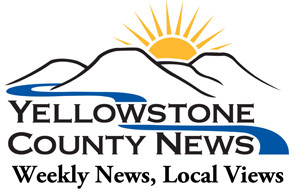by Evelyn Pyburn
In general, it could be concluded that county commissioners across the state do not like a piece of legislation that would require “government entities to record their public meeting in audio and video format.”
Representative Brad Barker (R), HD58, Roberts, said in a hearing last week that he introduced HB -328 in an effort to bring more transparency and accountability to government. Given the technology available, it is legislation that is about 20 years past due, he said. “We have the technology and knowledge to execute these requirements very, very easily,” he continued.
Having to comply with the requirements of the legislation would be too expensive for many counties, was a repeated refrain from numerous county officials in testifying before a hearing on the bill. Jason Riddle, executive director of The Montana Association of Counties (MACO) also stood opposed to the legislation on the grounds of affordability, adding, “it takes away local controls…leave choice at the local level.” He added, “Give us some sideboards that would be helpful at the local level in making decisions.”
He said that 75 percent of MACO’s membership are very small counties that can’t afford the cost.
“At a time when there is a lot of distrust about government, it is no time to push back on transparency,” said Barker.
Among other boards that would be required to record and make public their meeting proceedings are the board of investments, the employees’ retirement board, the board of public education and the board of regents of high education.
The recordings would not replace written minutes which are required by state law to be kept of all meetings of public bodies. After a specified time period the recordings could in fact be abandoned. Keeping and archiving recordings was one of the aspects of the proposal that concerned some pubic officials who said that would impose more costs.
The bill provides a $500 grant to government agencies to aid in covering the cost.

